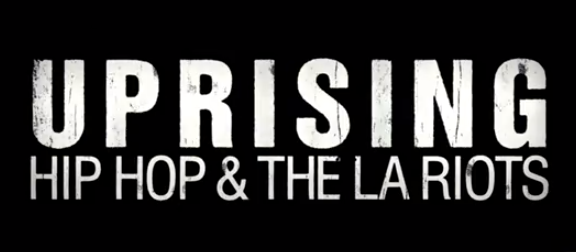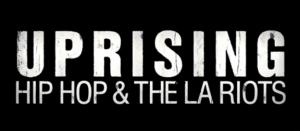Documentary Sees The LA Riots Through Raw Footage, Interviews

 Austin, Texas — “Uprising: Hip Hop and the L.A. Riots” is a documentary directed by Mark Ford that premiered at South by Southwest and will be shown on VH1 on May 1. The film encapsulates the three days in Los Angeles in 1992, when the earth stood still and all hell broke loose. The movie features past and current interviews by Ice Cube, KRS-One, Ice T, Henry Rollins, Rodney King and Henry Watson. The film begins with Rodney King recounting the moments that led to his infamous March 3, 1991 beating. We watch as it crescendos into boiling racial relations and finally into the riots themselves.
Austin, Texas — “Uprising: Hip Hop and the L.A. Riots” is a documentary directed by Mark Ford that premiered at South by Southwest and will be shown on VH1 on May 1. The film encapsulates the three days in Los Angeles in 1992, when the earth stood still and all hell broke loose. The movie features past and current interviews by Ice Cube, KRS-One, Ice T, Henry Rollins, Rodney King and Henry Watson. The film begins with Rodney King recounting the moments that led to his infamous March 3, 1991 beating. We watch as it crescendos into boiling racial relations and finally into the riots themselves.
The Good: This film features 90% of raw footage that was previously unseen. The music played brings back a time when you would have known what was going down, if only you listened to the lyrics. As a 15 year-old, I thought the riots were just a couple of buildings burning down and people making off with cases of powdered milk. Thanks to this footage, one can see the complete scope of the situation. There were some moments I found myself laughing even though I know I was not supposed to. Then there was one lady that happened to get squeamish when she heard stories being retold about Tupac Shakur participating in the madness, and signing autographs for looters who happened to pick up his album.
The Bad: This film could have done a better job at telling us what happened to these characters that were so pivotal during 1992. I think it would have been aided by Police Chief Daryl Gates’ minimal reaction to the riots. Another criticism would be that this film seems to gloss over what happened to the four police officers who beat King. There is no mention of civil suit that resulted in jail terms for both Officers Stacey Koon and Laurence Powell. Although we see Reverend Bennie Newton shielding the battered body of Fidel Lopez, we do not get to hear that particular story.
Audience reaction: This film polarized the audience. Some people were jolted from their seats as they watched bricks hitting skulls. Other folks simply waved their arms, synchronizing with the so-called soundtrack to the revolution. There was clearly no one left in the middle. At one point one of the audience members berated the director for not telling more of the story through the eyes of the police officers. I wonder if she would have felt the same way after reading any of those “LAPD will treat you like a King” t-shirts I grew up seeing. The documentary did not line up with the police officers — but rather with the aftermath of their actions.
This movie brought me back to a time I had completely disregarded. I remember waking up those last two days wondering when that cloud of smoke would come closer and closer in an attempt to swallow East Los Angeles whole. I had forgotten that fear and this movie brought it back. That is a good thing.

